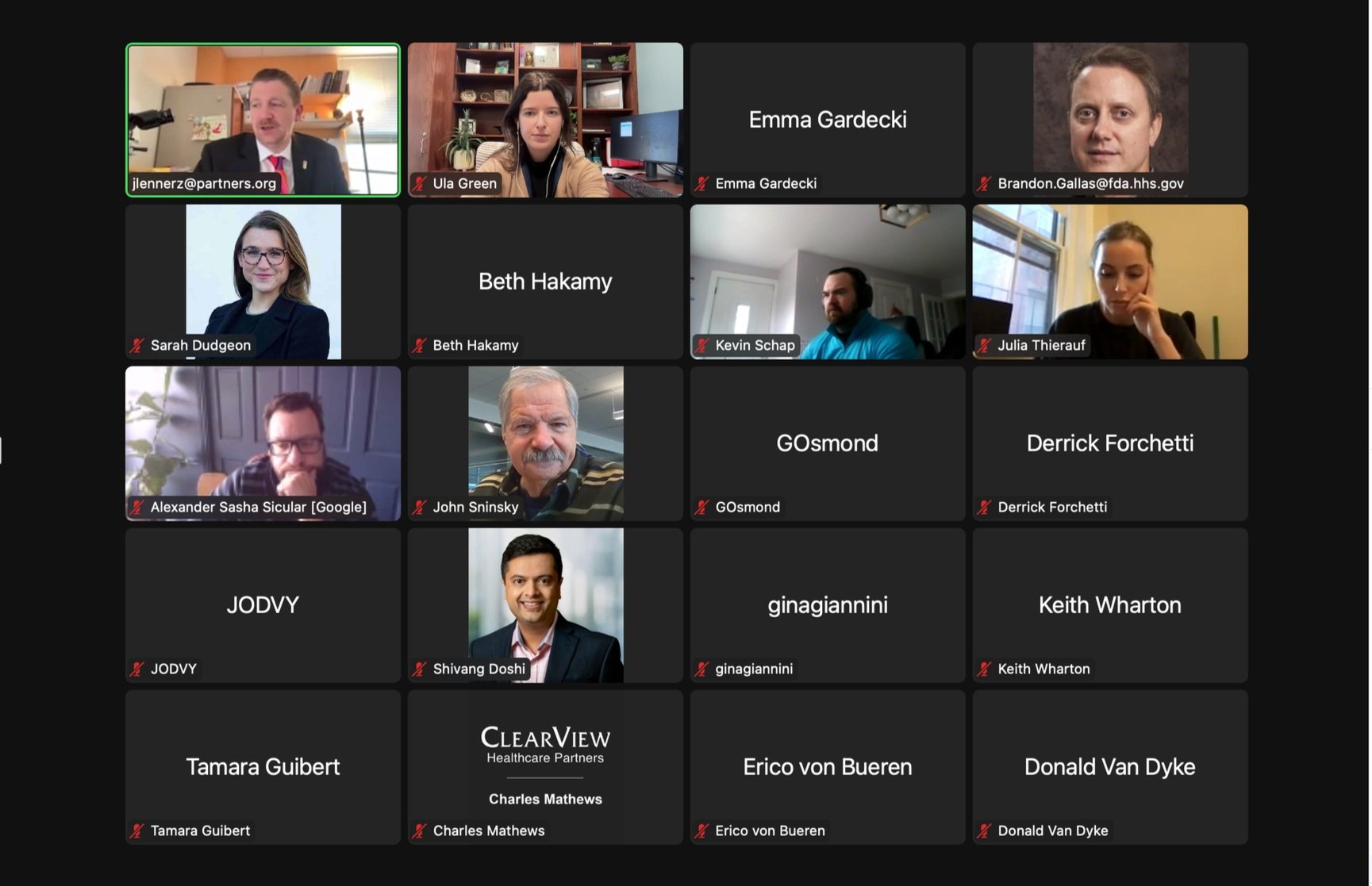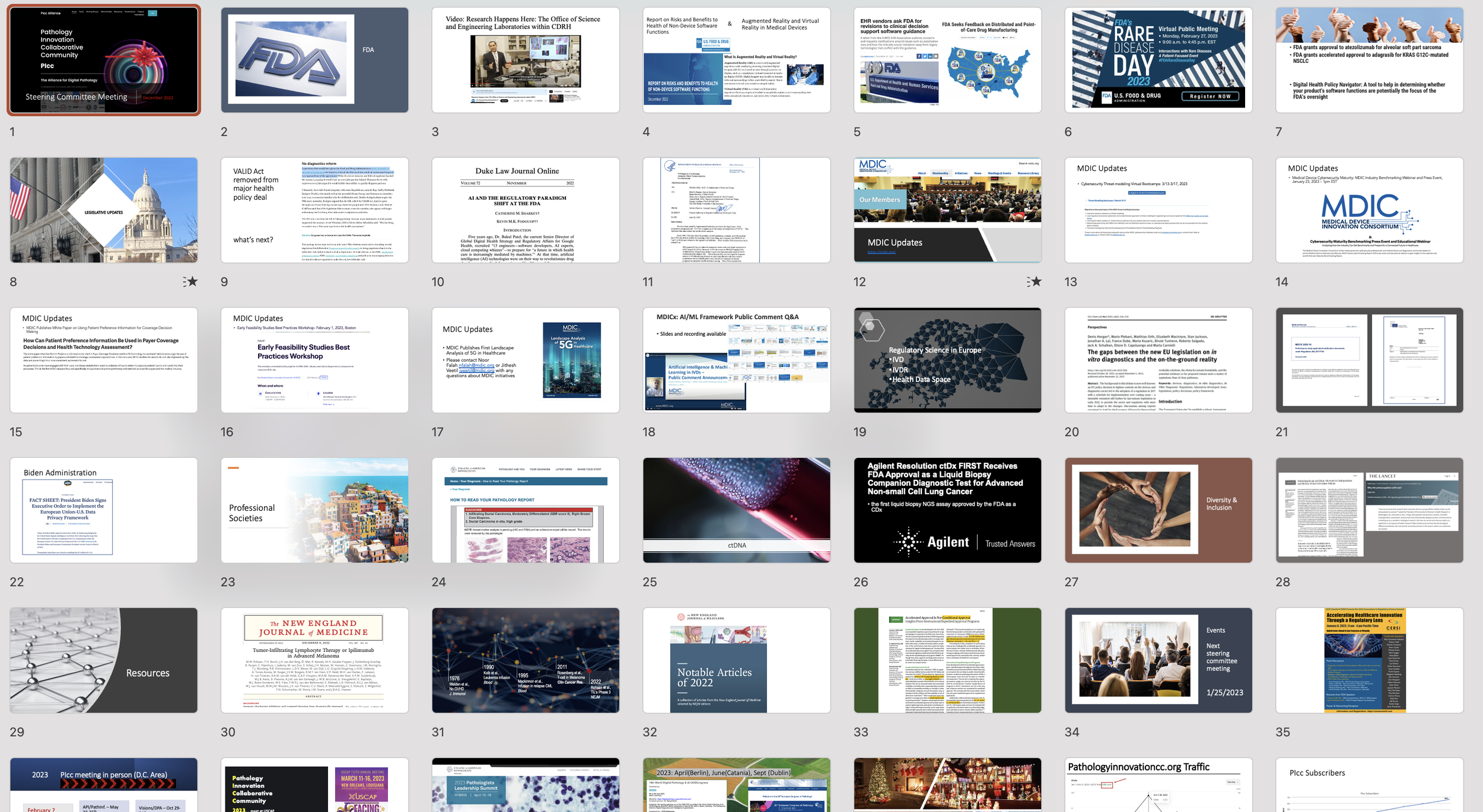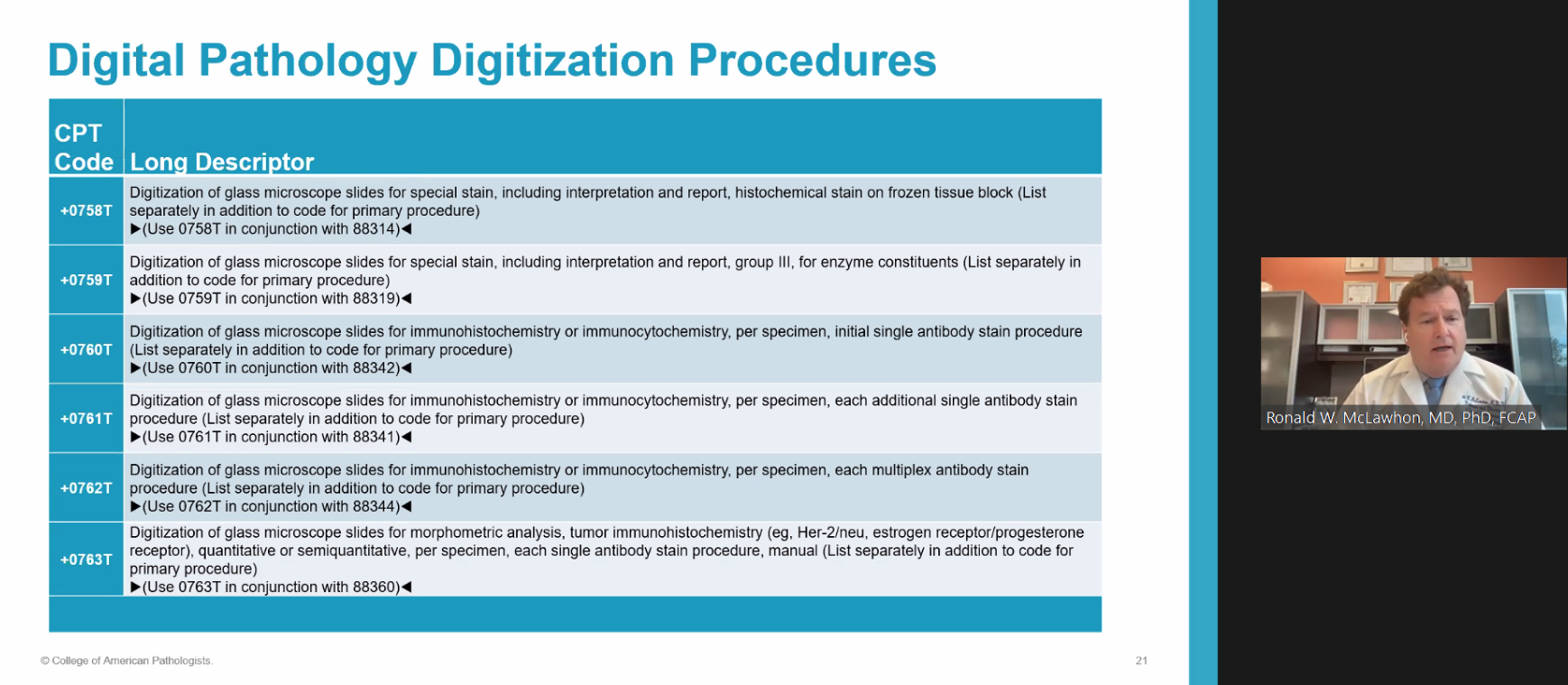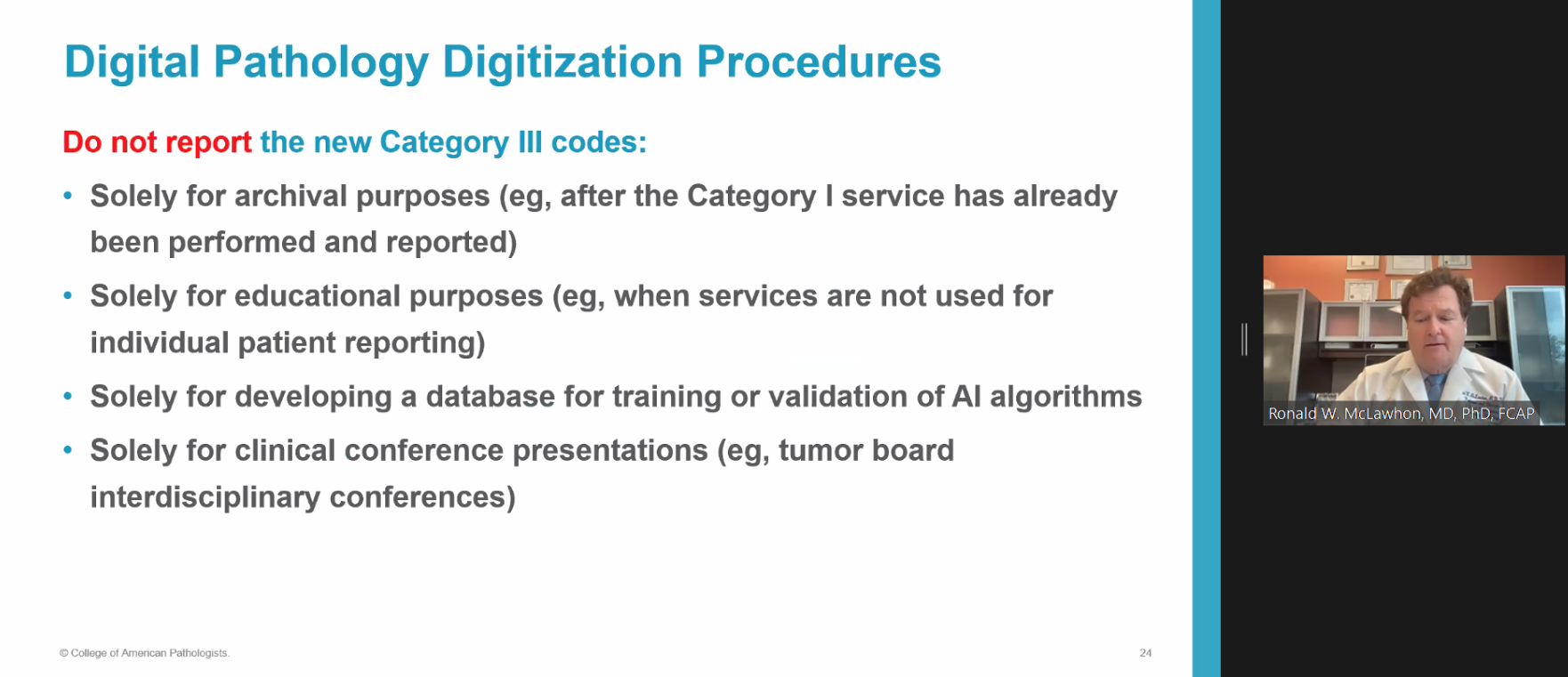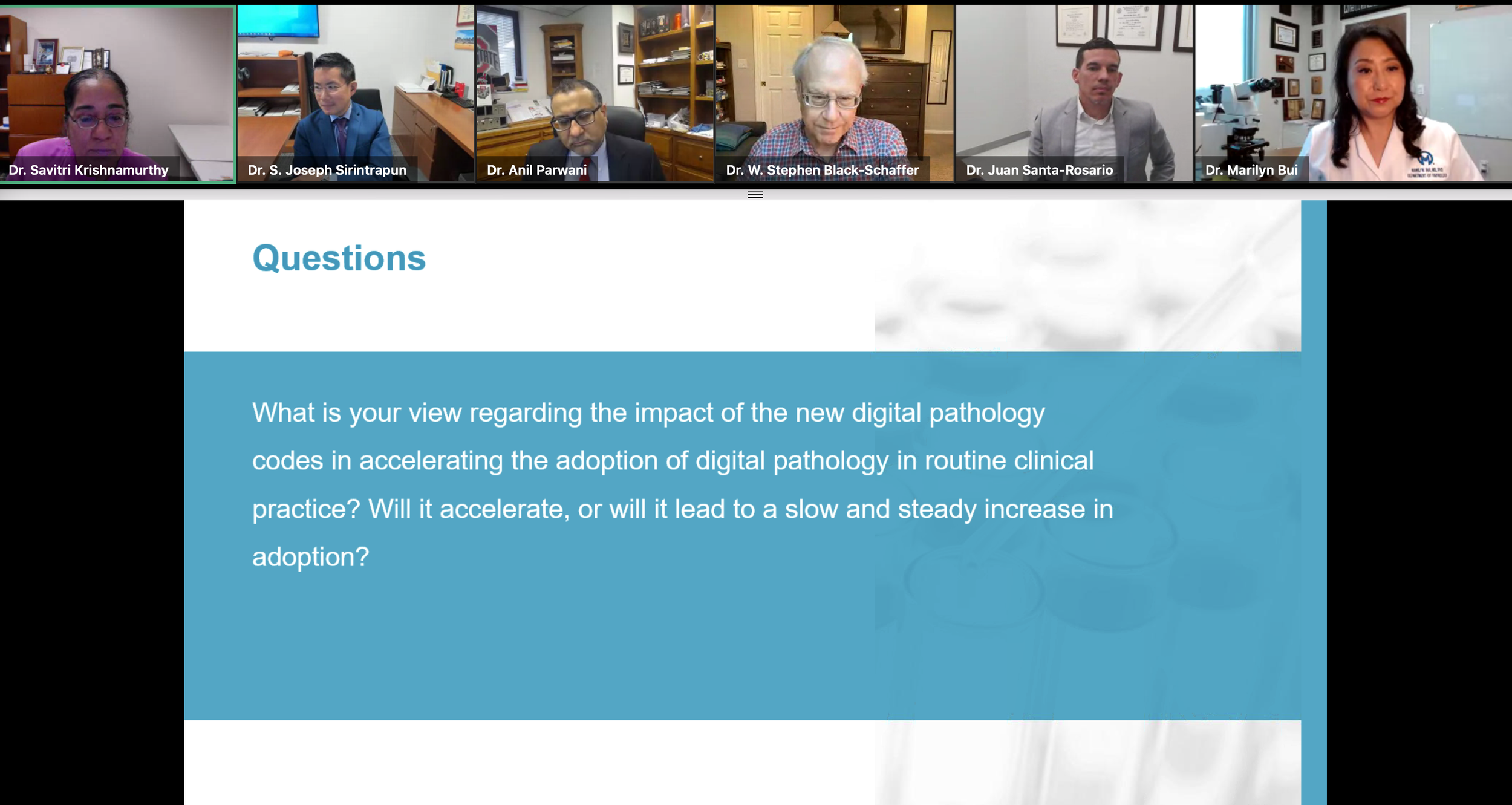12/21/22 Steering Committee Meeting
0:00-2:58 Intro
2:59-9:09 FDA
9:10-11:41 Legislative updates
11:42-14:51 MDIC updates
14:52-18:38 Reg science in Europe
18:39-19:50 Professional Societies
19:51-21:14 Diversity & Inclusion
21:15-25:02 Resources
25:03-30:54 2022 in review
30:55-33:40 Upcoming events
33:41-close Discussion
Download the slides from the meeting here
Meeting Summary & Content Links
News
HHS Grant: Novel Approaches to Support Therapeutic Development in Ultra-Rare Cancers (U01) Clinical Trial Optional (link)
Article 12/14/22: Remote Patient Testing Faces a Cloudy Future under VALID (link)
FACT SHEET: President Biden Signs Executive Order to Implement the European Union-U.S. Data Privacy Framework (link)
FACT SHEET: White House Details Progress from the Cancer Cabinet and Private Sector During Cancer Moonshot Week of Action (link)
CAP: How to read your pathology report (link)
‘Out of control’: Dozens of telehealth startups sent sensitive health information to big tech companies (link)
Real World Evidence
HARmonized Protocol Template to Enhance Reproducibility (HARPER) of Hypothesis Evaluating Real-World Evidence Studies on Treatment Effects: A Good Practices Report of a Joint ISPE/ISPOR Task Force (link)
FDA Updates
Video: Research Happens Here: The Office of Science and Engineering Laboratories within CDRH (link)
Report on Risks and Benefits to Health of Non-Device Software Functions (download .pdf)
Augmented Reality and Virtual Reality in Medical Devices (link)
EHR vendors ask FDA for revisions to clinical decision support software guidance (link)
Public meeting: FDA Rare Disease Day February 27th 2023 (link)
FDA Seeks Feedback on Distributed and Point-of-Care Drug Manufacturing (link)
FDA grants approval to atezolizumab for alveolar soft part sarcoma (link)
FDA grants accelerated approval to adagrasib for KRAS G12C-mutated NSCLC (link)
Digital Health Policy Navigator (link)
EU/IVDR
Implementation of the Medical Device Regulation: Brussel, 6 December 2022 (download .pdf)
MDCG 2020-19: Performance Study application/notification documents under Regulation (EU) 2017/746 (download .pdf)
Legislation
Congress needs to update FDA’s ability to regulate diagnostic tests, cosmetics (link)
Article: FDA Is Letting Harmful Lab-Developed Tests Fall Through the Cracks - We must regulate LDTs that carry risk (link)
AMP - Continued action is needed! Tell your Elected Representatives you oppose the VALID Act! (link)
ASCP – Continues Opposition to the VALID Act (link)
Duke Law Journal Online - AI and the regulatory paradigm shift at the FDA (download .pdf)
Laboratory
ASCLS article - “Remember Theranos?” (link)
Nature Careers Podcast “The dumbest person in the room”: moving labs and switching fields (link)
MDIC
MDICx: AI/ML Framework Public Comment:
Artificial Intelligence and Machine Learning for In Vitro Diagnostics (AI/ML) is revolutionizing medical device development and is being leveraged in applications ranging from digital image analysis to in vitro diagnostics. Although it is expected that the number of AI/ML-enabled medical device products will increase exponentially in the future, there is currently no suitable regulatory framework for addressing the iterative improvements that can occur post-launch for AI/ML-enabled medical devices, including in vitro diagnostics, while ensuring their safety and effectiveness for their intended use. Such a regulatory framework would need to take into account numerous factors, such as the potential use of Real World Data (RWD), and the appropriate metrics to use to address the unique challenges posed by AI/ML applications used as software in a medical device (SiMD) and/or software as a medical device (SaMD).
(link)
ctDNA
Agilent Resolution ctDx FIRST Receives FDA Approval as a Liquid Biopsy Companion Diagnostic Test for Advanced Non-small Cell Lung Cancer (link)
Diversity, Equity, & Inclusion
“How do we know that research that's primarily done on young, white, healthy males can be extrapolated to women?” asked the President of the Society for Women's Health Research in Washington, DC, USA, back in 2011. Today, that question has become a mantra. Scientific funding bodies, researchers, and journals have dramatically stepped up their commitments to including sex as a variable in biological research. But how can we be sure that sex really is so significant in all aspects of health research? What evidence do we have that the biological differences between men and women are profound even in the areas in which our anatomies are similar (link)
Paper - Hamilton et al., Defending Racial and Ethnic Diversity in Undergraduate and Medical School Admission Policies (download .pdf)
Resources
CAP: How to read your pathology report (link)
National Cancer Institute, Office of Cancer Genomics, CTD2 - Cancer Target Discovery and Development Network
A functional genomics initiative that bridges the gap between genomics and development of effective therapeutics. The Network aims to understand tumor development, heterogeneity, drug resistance, and metastasis to develop optimal combinations of chemotherapy with immunotherapy (link).
A toolset that will help make your thesis writing smooth and your thesis better (link)
Standard Operating Procedures Library (link)
GPAI: Artificial Intelligence for Public Good Drug Discovery Recommendations for Policy Development (download .pdf)
Uncharted Territory: Thoughts on leadership (download .pdf)
Nature Index institutions by a normalized metric on patent influence (download .pdf)
A joint project of Academic Medicine and the Group on Educational Affairs– Medical Education Scholarship Research and Evaluation Section (download .pdf)
Hybrid Work: Are we there yet? (download .pdf)
Principles of Programming Languages (download .pdf)
Payor
RNA Cancer Panel Coding (link)
CAP meeting on digital pathology and billing updates
Drug development and Digital Pathology
New technologies that are impacting the pace of drug discovery and development. GLP-compliant system for learning and working fast (link)
Pharma’s Digital Pathology Build-Out; Part 2 – What It Means (link)
Papers of interest
The impact of population-based EGFR testing in non-squamous metastatic non-small cell lung cancer in Alberta, Canada (link)
Rohaan et al. Tumor-Infiltrating Lymphocyte Therapy or Ipilimumab in Advanced Melanoma (download .pdf)
Tsimberidou et al. Transcriptomics and solid tumors: The next frontier in precision cancer medicine (download .pdf)
Kuan et al. Identifying and visualising multimorbidity and comorbidity patterns in patients in the English National Health Service: a population-based study (download .pdf)
Fremond et al. Interpretable deep learning model to predict the molecular classification of endometrial cancer from haematoxylin and eosin-stained whole-slide images: a combined analysis of the PORTEC randomised trials and clinical cohorts (download .pdf)
Vigdorovits et al. redicting the evolution of lung squamous cell carcinoma in situ using deep learning (download .pdf)
Lorch et al. Identification of Recurrent Activating HER2 Mutations in Primary Canine Pulmonary Adenocarcinoma (download .pdf)
Zadeh et al. Depresssion, anxiety and other cognitive consequences of social isolation: Drug and non-drug treatments (download .pdf)
R. Raja Sekhara Reddy and M. V. Ramanujam. High Throughput Sequencing-Based Approaches for Gene Expression Analysis (download .pdf)
McFarland et al. Detection of BRCA1, and BRCA2 in Matched Tumor Tissue and Circulating Cell-Free DNA in Patients with Prostate Cancer in a Real-World Setting (download .pdf)
Neal et al. Cell-Free DNA–Based Multi-Cancer Early Detection Test in an Asymptomatic Screening Population (NHS-Galleri): Design of a Pragmatic, Prospective Randomised Controlled Trial (download .pdf)
Clinical briefing: Precision medicine improves outcomes in metastatic breast cancer (download .pdf)
Nourieh et al. Next-generation sequencing in breast pathology: real impact on routine practice over a decade since its introduction (download .pdf)
Naito et al. Concordance Between Recommendations From Multidisciplinary Molecular Tumor Boards and Central Consensus for Cancer Treatment in Japan (download .pdf)
Richard L. Schilsky, M.D., and Dan L. Longo, M.D. Closing the Gap in Cancer Genomic Testing (download .pdf)
Butterfield et al. Racial disparities in recommendations for surgical resection of primary brain tumours: a registry-based cohort analysis (download .pdf)
Rui-Xue Huang and Ping-Kun Zhou. DNA damage response signaling pathways and targets for radiotherapy sensitization in cancer (download .pdf)
Chen et al. Molecular mechanisms of exercise contributing to tissue regeneration (download .pdf)
Eric Seidel and Silvia von Karstedt. Extrinsic cell death pathway plasticity: a driver of clonal evolution in cancer? (download .pdf)
Doebley et al. A framework for clinical cancer subtyping from nucleosome profiling of cell-free DNA (download .pdf)
Sailer et al. Experimental in vitro, ex vivo and in vivo models in prostate cancer research (download .pdf)
Stamatakis et al. Association of wearable device-measured vigorous intermittent lifestyle physical activity with mortality (download .pdf)
Rood et al. Impact of the Human Cell Atlas on medicine (download .pdf)
Lee et al. Comprehensive pan-cancer genomic landscape of KRAS altered cancers and real-world outcomes in solid tumors (download .pdf)
Schmitt et al. The World Health Organization Reporting System for Lung Cytopathology (download .pdf)
Stein et al. The World Health Organization Reporting System for Lung Cytopathology (download .pdf)
Sarkar et al. Nucleosome patterns in circulating tumor DNA reveal transcriptional regulation of advanced prostate cancer phenotypes (download .pdf)
Singh et al. Mandatory Reporting of Emissions to Achieve Net-Zero Health Care (download .pdf)
Sanders et al. Machine learning multi-omics analysis reveals cancer driver dysregulation in pan-cancer cell lines compared to primary tumors (download .pdf)
Vazquez-Garcia et al. Ovarian cancer mutational processes drive site-specific immune evasion (download .pdf)
Sagredo, Ganguli, & Ciccarelli. Somatic variation in normal tissues: friend or foe of cancer early detection? (download .pdf)
Singh et al. Global estimates of incidence and mortality of cervical cancer in 2020: a baseline analysis of the WHO Global Cervical Cancer Elimination Initiative (download .pdf)
Mehta, Claro, & Pazdur. Accelerated Approval Is Not Conditional Approval. Insights From International Expedited Approval Programs (download .pdf)
From Discussion
Raciti et al. Clinical Validation of Artificial Intelligence–Augmented Pathology Diagnosis Demonstrates Significant Gains in Diagnostic Accuracy in Prostate Cancer Detection (download .pdf)

